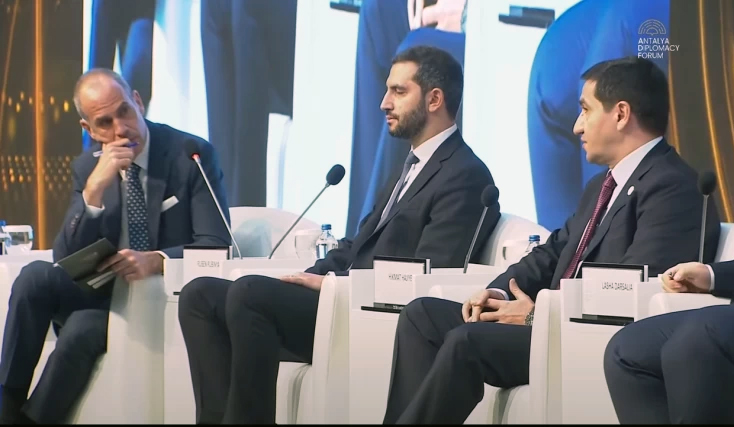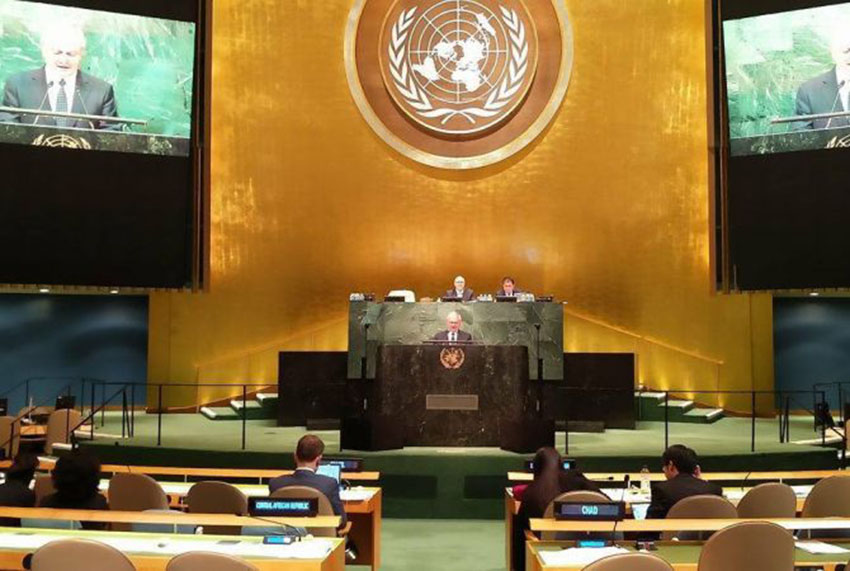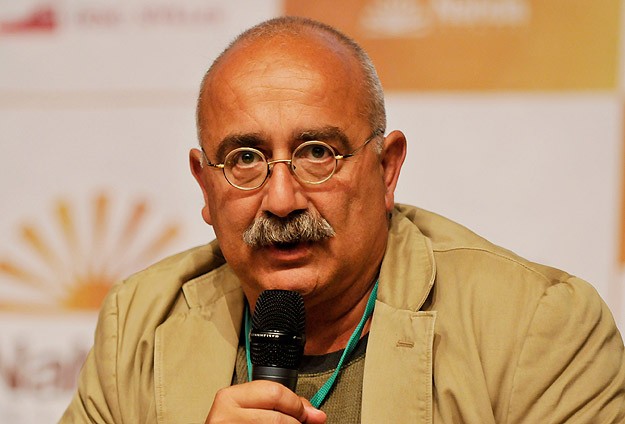ANTALYA — During a panel discussion held within the framework of the Antalya Diplomatic Forum in Turkey, Ruben Rubinyan, Deputy Speaker of the Armenian Parliament and Special Representative of Armenia for the normalization of relations with Turkey, stated that Armenia’s legislation is its internal affair and has nothing to do with Armenian-Azerbaijani peace talks.
Rubinyan was responding to Hikmet Hajiyev, Azerbaijani President Ilham Aliyev’s top foreign policy aide, who claimed that Baku is still awaiting Yerevan’s “clear answers” regarding legal provisions in Armenia’s constitution which contain territorial claims to Azerbaijan.
Rubinyan also said that Armenia has never agreed to provide an extraterritorial corridor to Azerbaijan. “Armenia’s position is that the unblocking of regional communications in the South Caucasus should take place based on the principles of sovereignty, legislation, territorial integrity, equality, and reciprocity.”
The deputy speaker added that sometimes the terms used by Azerbaijan reveal the true intentions of those who use them. “For example, why has Armenia decided to call its initiative to unblock communications in the region ‘Crossroads of Peace’? Because we want our region to be a crossroads of peace. Azerbaijan continues to use the term ‘Zangezur Corridor’. There is no territorial unit named ‘Zangezur’ in the sovereign territory of Armenia, and Armenia has never agreed to give an extraterritorial corridor to Azerbaijan,” said Rubinyan.
Speaking on the resolution of Armenia-Turkey relations, Rubinyan said it would positively impact the situation in the South Caucasus, as well as the process of improving relations between Armenia and Azerbaijan. The special representative of Turkey for the normalization of relations with Armenia, Serdar Kilic, also participated in the discussion.
“It is no secret that the relations between Armenia and Turkey have a huge historical context, and this does not make our work easier. However, Armenia is committed to working for the present and the future. In July 2022, Serdar Kilic and I announced that in the summer of 2023 we would open the Armenia-Turkey land border to citizens of the third countries, and then to diplomatic passport holders. Unfortunately, this has not happened yet. The entire infrastructure for this is ready on the Armenian side. And if Serdar agrees, we can announce that we are implementing this agreement,” he said.
Rubinyan added that he often notices a certain sensitivity in that matter on both sides, which sometimes gives an emotional character to the process both positively and negatively.
Ruben Rubinyan recalled that during last year’s devastating earthquake in Turkey, for the first time in 30 years, the borders of the two countries were temporarily reopened so that trucks with humanitarian aid from Armenia could cross the border and reach the earthquake zone; and this, according to him, was an inspiring moment.
“This is also a sad fact because we shouldn’t need tragedies to open borders; borders should not be opened for tragic reasons. We need open borders during times of happiness and prosperity. And I see no reason why the Armenian-Turkish border should remain closed,” Rubinyan said.
He expressed hope that the agreements reached with Turkey will be implemented very soon, noting that it will be the first step toward the comprehensive regulation of relations between the two countries and the full unblocking of the Armenian-Turkish border.
“This will have a very positive effect on the situation in the South Caucasus, as well as on the normalization process of relations between Armenia and Azerbaijan,” Rubinyan concluded.










